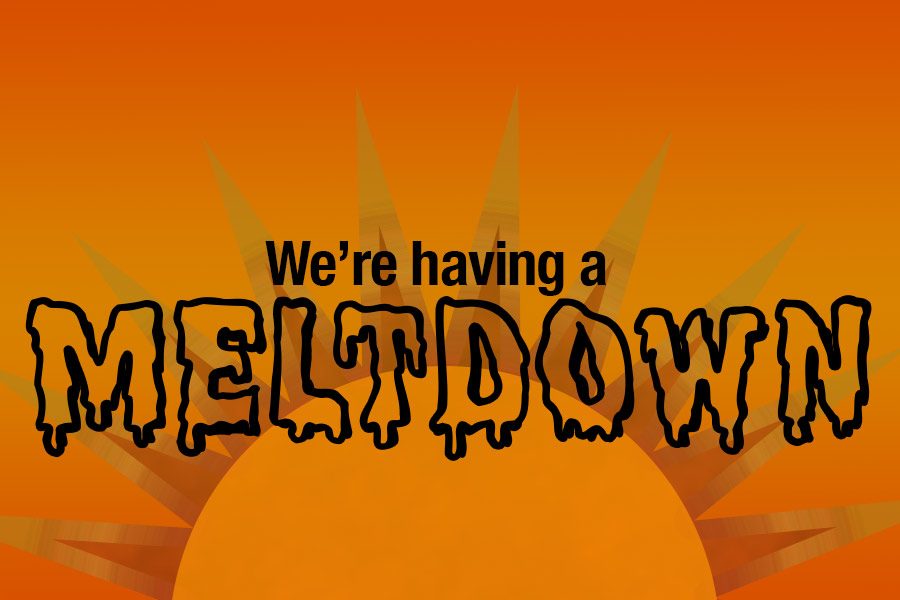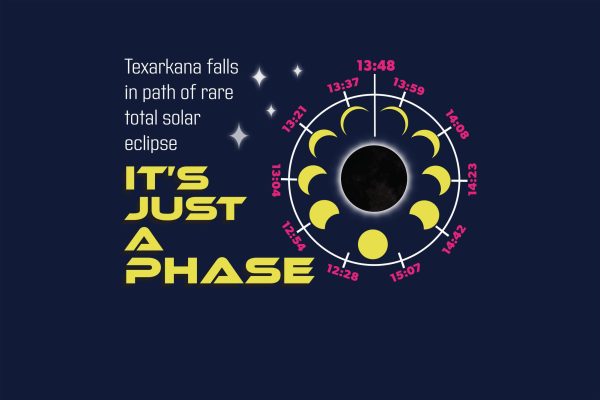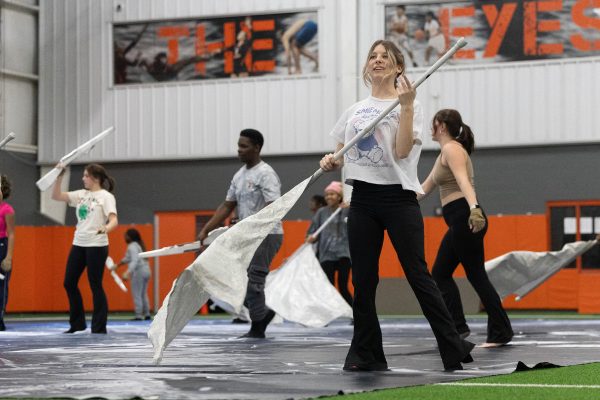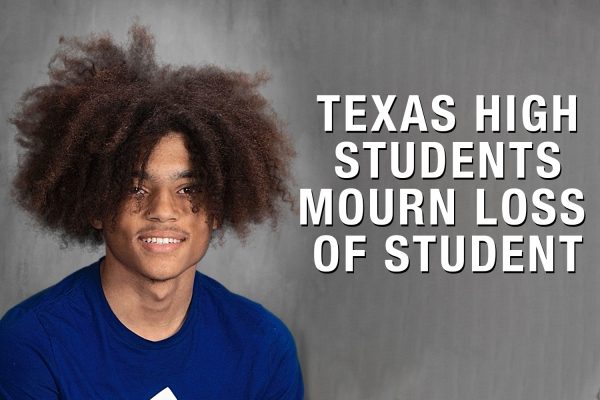We’re having a meltdown
April 21, 2016
The world is going to end soon.
In the near future, we’ll see ancient walls of ice crashing down and melting, billions of gallons worth of tidal waves surging into oceans. Sea levels rising to unprecedented levels, swallowing islands whole and magically erasing coastlines. Great cities, magnificent skylines, quickly fading to mere myths, as distant as the lost city of Atlantis. Ozone layers worn so thin, the sun burns hotter than ever before, scorching the earth and sucking the moisture out of crops. Chaos ensues.
At least, that’s what Hollywood would have you believe.
But others place their faith in a completely different reality.
“I don’t believe in global warming, but that’s just my opinion,” junior Colby Adkins said.
Yet global warming is an increasingly prevalent topic in political debates and everyday conversation, with candidates in the upcoming presidential election weighing in on climate change. Donald Trump has long disavowed global warming, and, according to The Guardian, was quoted last week as saying “I am not a great believer in man-made climate change. I’m not a great believer.”
Texas has long been a state that tends to favor more conservative views, holding off on outright agreement with the numerous scientists and institutions that study the changing nature of the earth, but many have decided stances on the climate.
“There is no question as to whether the planet is warming,” environmental science teacher Kelly Rowland said. “It is. The question is among scientists, whether man has an impact on that or not. The earth, as a planet, has gone through cyclic patterns of warming and cooling since it began. What we see now is that the cycle has been interrupted, and we should in fact be in another ice age. But because of man’s activities, and putting what we call greenhouse gases such as CO2 and water vapor in the air, through pollution we have trapped that in the atmosphere and warmed the planet.”
Man’s activities are widespread- you name it, we’ve done it, especially in the last 100 years. The past century alone has seen the earth’s temperature rise between 0.4 and 0.8 °C, according to livescience.com. With the boom in industrial manufacturing reaching its peak in the early 1900s, most Americans saw only the profits that could be earned from mass production of goods, failing to note the possible environmental consequences. This trend continued for the next several decades, but recent spikes in temperature and increases in storms brought the topic to national attention. Now, nearly everyone has an opinion.
“I think it’s real,” sophomore Blaire Berry said. “I think it actually exists. We’ve had some of the highest temperatures in the past couple of years. I would think that in this case the liberals are right. Of course I’m sure there are conservatives that believe it too, but yeah, I think in general everyone needs to realize it’s a thing. I mean, it’s March and it’s 82 degrees.”
That same weather, while certainly a cause for celebration for the multitude of Americans that were able to go swimming this past Christmas, has also set off a certain unprecedented environmental chain. In 2010, Russians were hit with heat waves so intense people died from them, with temperatures that, in the 1960s, were expected to repeat only once a century, according to Scientific American. Now, however, they’re much more widespread. And of course, places like Alaska are changing rapidly- Anchorage reported its highest-ever winter temperatures this year, the Los Angeles Times reported.
The earth is poised for change, and to people like Rowland, the important thing is anticipating and preventing a possible disaster.
“Well, the consequences are that the ice caps will melt, glacial ice will melt, our sea level is going to rise,” Rowland says. “Globally a lot of land will become ocean water. Probably, if that happens, the Gulf coast will be closer to Texarkana. The problem is trying to get people to understand that even though it may not happen in your lifetime, it’s going to happen if we don’t do something about it.”
In response to fears about the future condition of the planet, a concept known as sustainable living came into fruition. Largely credited to conservationist Rachel Carson, the eco-friendly, all-green lifestyle commits individuals to altering their everyday patterns in order to protect the earth for future generations.
“Something that is inconvenient or difficult for us to do now could help our children or grandchildren,” Rowland said. “So one of the problems is that it’s hard to get people to make uncomfortable choices when they will never see the fruits of their labor.”
No matter your political views, the general agreement is to simply do your part.
“It seems like a lot of people disrespect the planet,” senior Dylan Gray said. “God made this planet, and we should respect it and take care of it.”




















